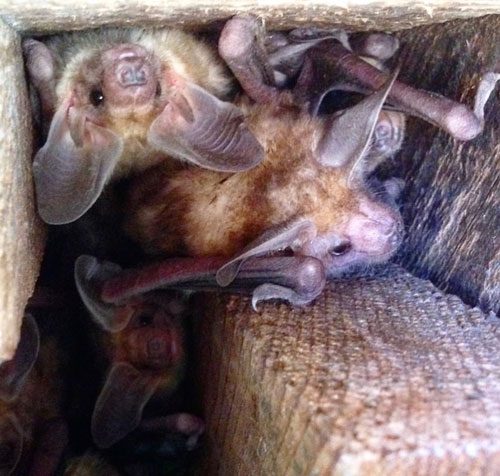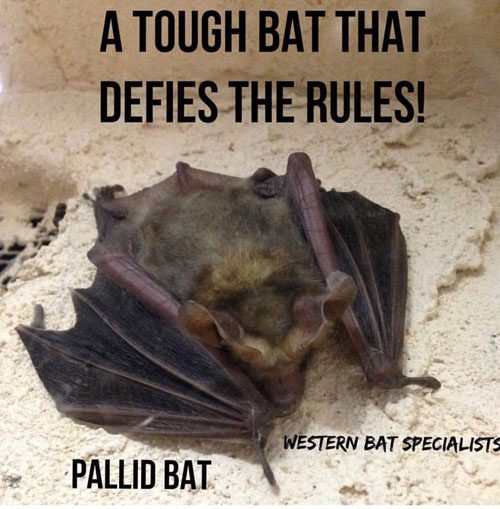
https://www.facebook.com/144437204518/posts/10156652118594519/
Pallid bats are gregarious and will roost in colonies between 20 and several hundred individuals. They love to typically roost in rock crevices, but they can also be found in attics, barns, caves and under bridges. These are extremely stinky bats! The pallid bat will night-roost by locating a place that is warm from the latent heat of the day and eat prey caught while flying or swap social information with other members in the colony.
Females will form maternity colonies. These colonies are typically small, with populations around 20 or so individuals. Each mother will give birth to one pup in May or June and the pup will stay with the mother until it can fly—usually within five to six weeks. 🦇 Pallids – bats are maternal. 🦇 Female Pallid bats do not raise newborns of other females. Some colonies will care for each other young….. but NOT pallids They only care for their own. <<<<<<<<<<<<<<<<<<<<<<<<<
#bats #batfacts #napa #portola #truckee #tahoe #westernbatspecialists #welovebats #batcon


